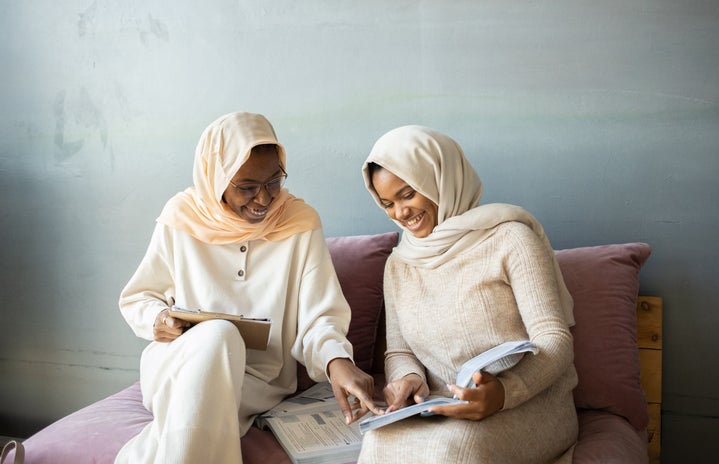What is Ramadan?
Every year, Muslims around the world await the most sacred month of the year: Ramadan. It is believed that during this month, God revealed the first verses of the Quran (the Islamic holy book) to the Prophet Mohammed. In celebration, each day of Ramadan, Muslims fast from dawn to sunset. The month is devoted to charity, spirituality, and goodness. The end of Ramadan brings a big celebration: Eid. This holiday is similar to Christmas where family and friends gather to share food, gifts and a memorable time. Despite the hardness of fasting, most Muslims (myself included) really enjoy Ramadan and are sad as it ends.
- Lunar calendar
-
Ramadan fluctuates each year and is not always the same month. This is because the lunar Islamic calendar follows the phases of the moon. This means the beginning and end of Ramadan are not set dates. In fact, there is a moon-watching committee in Saudi Arabia that is in charge of determining the days.
Side note: Oftentimes it can be foggy and hard to spot the moon. Therefore, many argue that using scientific calculations should be the main way of determining the dates. However, others argue we should stick to tradition and watch the moon. This leads to the “moon-sighting fight” every.single.year.
- How does fasting work?
-
There are 5 pillars at the root of Islam; faith, prayer, charity, pilgrimage and fasting. The purpose of fasting is to develop empathy by showing how hard hunger and thirst can be. The goal is to feel compassion and develop a sense of responsibility to help those in need.
Fasting includes abstaining from any food and drink from dawn to sunset. No eating or drinking is allowed at all, yes, not even water. Drinking or eating anything would break your fast, and fasting another day (anytime in the year) would be required to make up for it.
Aside from food and drink, Muslims are also supposed to abstain from negative thoughts and emotions. We are encouraged to watch our words (no swearing, lying or gossiping), be kind and avoid anger, jealousy and other negative desires.
- What if?
-
There are many excuses and alterations to fasting. Islam states many different rules for those who are ill, eldery, menstruating, pregnant, traveling and young children.
Pro tip: if your female-Muslim friend is eating/drinking during fasting time, she is most likely on her period and the only acceptable question you can pose is: Would you like some ice cream?
- How you can be respectful to your Muslim friends/acquaitances during Ramadan.
-
Most Muslims do not expect their non-Muslim friends to radically change their behavior during Ramadan, however there are some little things that really do go a long way.
Try to remember not to offer us food/drink, if you do however, we will not get mad. It is simply because sometimes we can forget we are fasting and accept the piece of cookie you’ve offered, setting us back a whole day of fasting. You could also try to schedule dinner parties around sunset so that we are able to join in.
I’ve had friends that have offered to fast a day (or few) with me, as a way to show solidarity and experience other religions/cultures. However, it takes about 5-hours before said friend decides that solidarity is overrated and that is it time to get some Chick-Fil-A.
Lastly, wishing your Muslim friends a “Happy Ramadan” or “Happy Eid” is completely fine and non-offensive. If you want to put in some effort and earn bonus friendship points, the correct saying is “Ramadan Kareem” (have a generous ramadan) and “Eid Mubarak”(have a blessed Eid).


